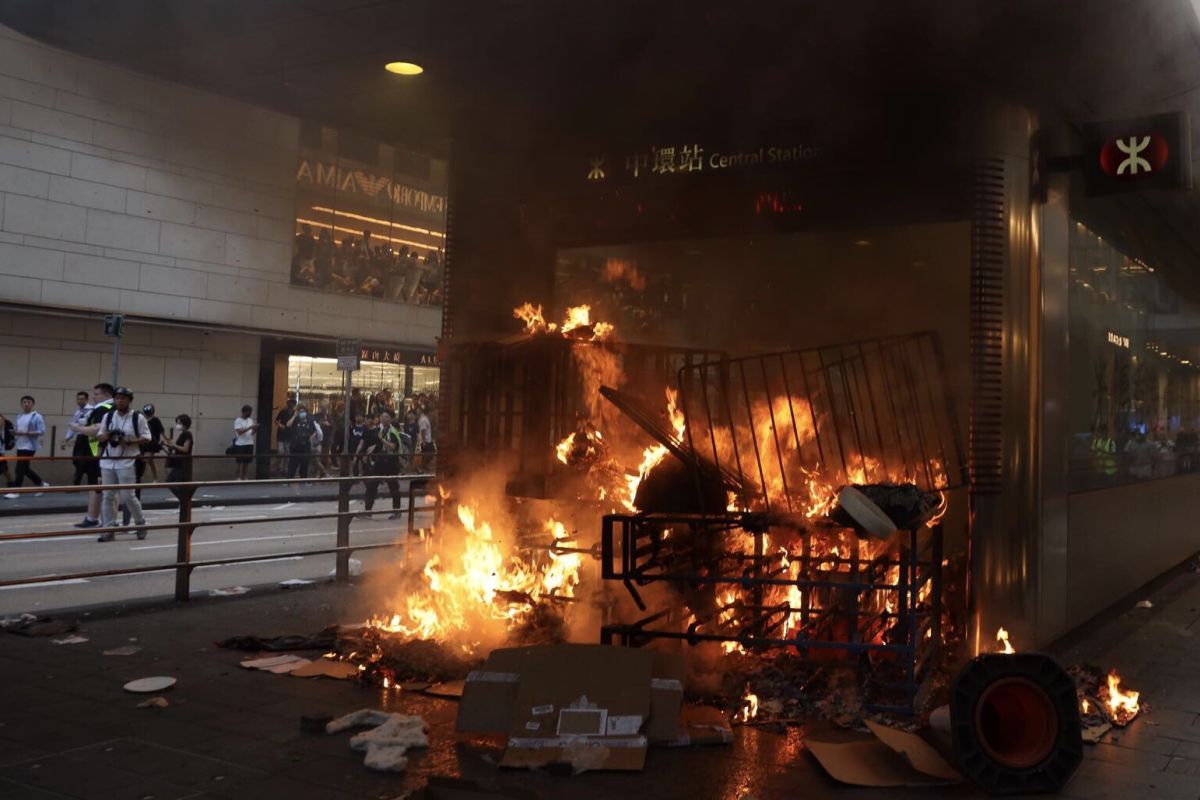Opposition Erased
The decision to dissolve the Democratic Party in Hong Kong, its largest opposition grouping, is stark confirmation of the city’s shifting political landscape.
Some 40 grams of low explosives were inside the bomb, but it remains unclear what the substance was.

Hong Kong protests (Photo: IANS)
Hong Kong police have arrested at least 10 members of a radical anti-government group, with the suspects believed to be linked to a powerful pipe bomb seized earlier, according to report on Thursday.
Earlier on Tuesday, police arrested the first member in a subdivided flat in a Mong Kok and in Ho Par village in Sheung Shui, detaining four suspects, three of whom were students.
Advertisement
The fourth suspect, a 29-year-old mechanic, was found in a flat that police described as a makeshift laboratory for making bombs.
Advertisement
The bomb, the first such improvised explosive device found in the city, was also recovered.
Some 40 grams of low explosives were inside the bomb, but it remains unclear what the substance was.
Senior Superintendent Chan Tin-chu said while speaking to the media that the device was discovered late on Tuesday and was ready to be used, and powerful enough to kill.
Earlier in the month, thousands of protesters came out en masse or the march organizers had to eventually cancel following police orders, that later led to clashes between officers and the more radical protesters.
Demonstrations in Hong Kong began in June following a controversial extradition bill, already withdrawn by the government, but have mutated into a movement seeking to improve Hong Kong’s democratic mechanisms and safeguard the region’s partial autonomy from Beijing.
Months of protests have plunged Hong Kong’s economy into recession for the first time in a decade, having contracted by 2.9 per cent in the third quarter, due to falling imports and exports, retail sales and declining tourism.
The protests have been largely peaceful for much of December after pro-democracy candidates overwhelmingly won district council elections the month before.
Hong Kong’s protests are largely leaderless and organised online. They were initially sparked by a now-abandoned attempt to allow extraditions to the mainland but have since morphed into a popular revolt against Beijing’s rule.
The controversial China extradition bill was withdrawn in early September but the movement has morphed into a wider campaign for greater democracy and against alleged police brutality.
Advertisement